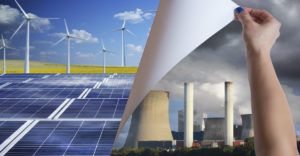Page Contents
Advertiser Disclosure: At ElectricityRates.com, our number one goal is to help you make better energy decisions. We adhere to strict editorial guidelines, however this post may include references to products offered from our partners.
In this article, we'll tell you about professional home energy audits, which can identify even more ways to reduce your electricity consumption.
Also referred to as professional energy assessments, home energy audits evaluate your home's energy usage while identifying ways to improve energy consumption in much greater detail that DIY home audits. An energy auditor will do several things, including reviewing your utility bills, conducting a room-to-room walk through, and may conduct a blower door test or a thermographic scan. Making improvements suggested by an energy audit can save you 5% to 30% on your energy bills.
How to Find an Energy Auditor
The first place to start when looking for a home energy auditor is through your utility. Many utility companies provide auditing services at a discount or for free. State and local government energy programs may also have resources to help you find a reputable energy auditor at affordable prices. The Residential Energy Service Network's website is also a good resource to find a certified energy auditor in your area.
If your utility does not provide free or discounted energy audits, they are still affordable with most auditors charging $50-$100 for service.
Prepare for the Energy Audit
Prior to an energy audit, you will want to gather your utility bills from the past twelve months so that usage can be evaluated from month-to-month and season-to-season. You can call your local utility to get past copies of your bills if you haven't kept these. If you have an online account, you may also be able to view and print your past bills there.
Make a note of any concerns that you already know of, such as drafts, air leaks, condensation, and problems with heating and cooling units. Write down questions that you have for the auditor in case you forget during the audit.
The Energy Auditing Process
The actual process varies from auditor-to-auditor, but most auditors will do all or most of the following:
- The energy auditor will review your utility bills from the past twelve months in order to figure out when the most energy is being used, make sure that you are paying the correct amount for the energy you use, and to find unusual inconsistencies and patterns in your usage.
- A room-to-room walkthrough will help to identify major air leaks, plugged in (but turned-off) appliances that are wasting energy, and insulation that needs to be replaced or added.
- A thermographic inspection will help to detect air leaks and drafts that aren't readily noticeable.
- Blower door tests verify a home's airtightness and can also help to identify air leaks that aren't noticeable.


